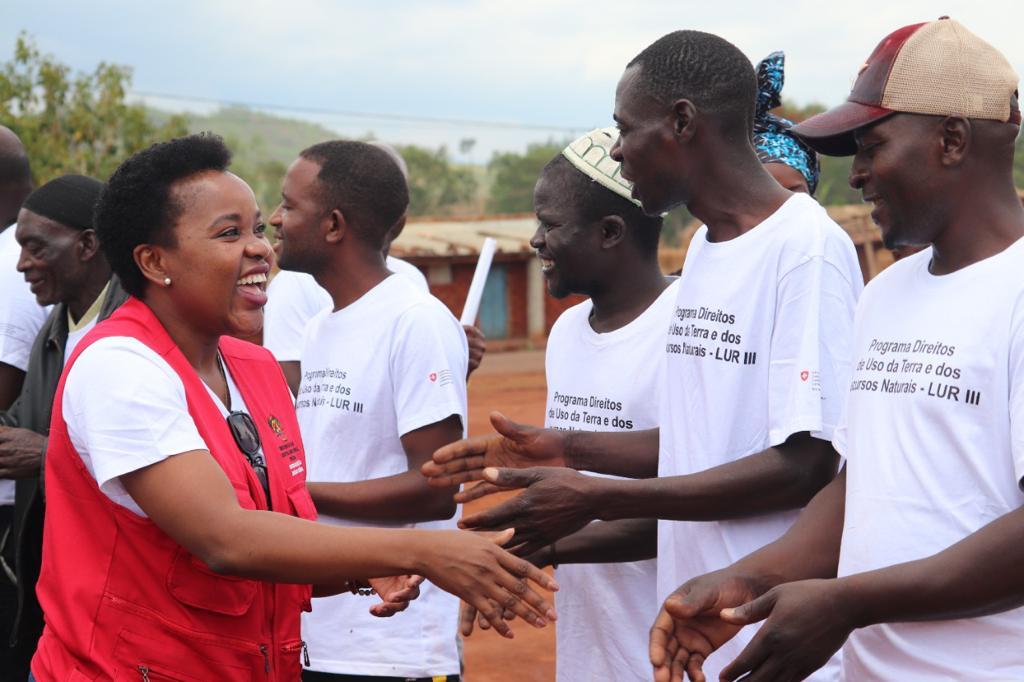In Africa, women judges improve trust in courts, bring justice to the less privileged and empower women and girls
June 6, 2023

Having more women judges on the bench reflects the true diversity of society and brings equality and fairness to the justice system
The Hague, 6 June 2023 – Women’s meaningful representation in justice is a precondition to bringing justice to those who need it the most. According to a new joint UN Women and UNDP research, having more women judges on the bench reflects the true diversity of society and brings equality and fairness to the justice system. The presence of women increases trust in the judiciary and improves justice experience for women and groups most at risk of being left behind.
UNDP and UN Women commissioned comprehensive research on women in justice in selected African countries[1] as part of the broader Women in Justice in Africa initiative developed within the Gender Justice Platform, a strategic partnership between the two UN agencies.
Based on the official data, trends analysis and the interviews with women jurists in more than ten African countries, the research confirms that women judges are less susceptible to corruption. They also strengthen gender-sensitive decision-making and help move away from patriarchal bias. Finally, women’s participation in the judiciary inspires the next generation of women and creates more opportunities for other women in the sector.
Despite these proven societal benefits, women’s representation in justice across the African continent remains low. On average, four in ten judges in Africa are women, and more often they hold positions in lower courts than in higher courts. Overall, very few women in Africa reach top positions in the judiciary. Negative social norms, harassment, low levels of security, few or no opportunities to maintain work-life balance are some of the barriers to women joining the judiciary and progressing through the ranks.
Here is what women judges from African countries shared about their experience:
“I recall a man who was very angry because he was tried by a woman. He ignored me when I was addressing him,” recalls a judge from Mozambique.
“One court president’s house was burnt down and unfortunately she was in it and she died,” said a judge from Lesotho.
At times, judges or aspiring judges must relocate to remote areas far from home to get a job or to be promoted. For women who have family obligations and who are mothers, this may not be an option, including because of social norms.
The Lesotho judge added: “They [women judges] have to travel long distances. When you have children, if you are deep in the mountains it is difficult to take your child to a clinic or a hospital.”
Insights such as these, aligned with lessons learnt through the Women in Justice in Africa initiative, demonstrate that the number of women judges, especially in higher courts, will not increase organically without specific measures and/or regulations adapted to apply a gender lens and consider specific challenges women judges may face when they have to work in certain regions.
In order to achieve gender parity in the judiciary, UNDP and UN Women have identified good practices and recommendations, including gender quotas, peer support and civil society advocacy. Experts note, however, that quotas and a fair recruitment system will only work well when supported by political will and commitment from gatekeepers. To demonstrate the will to work towards gender parity, judiciaries are encouraged to promote gender sensitive workplaces, establish or strengthen mentorship initiatives for women judges, amplify opportunities for a cross cultural dialogue, as well as peer learning support to facilitate sharing of experiences.
Greater representation of women in the judiciary also contributes to broader goal of achieving the 2030 Agenda, especially Sustainable Development Goal (SDG) 5 on gender equality and SDG 16 on peace, justice and strong institutions.
When women enjoy access to education, freedom of choice, protection from violence, harassment and discrimination, particularly in the justice sector, they can become powerful human rights champions and agents of change for the benefit of their societies.
About the Gender Justice Platform
Since 2020, UNDP and UN Women have worked together to empower women, support their leadership and fulfil the promise of justice and human rights for all. In 2022, this partnership evolved into the Gender Justice Platform, a framework for strategic cooperation and upscaled joint initiatives.
In line with UNDP’s Gender Equality Strategy and guided by a people-centred approach, the Gender Justice Platform seeks to advance gender equality, close the global gender justice gap by ensuring women’s access to justice and supporting women’s meaningful participation and leadership in the justice and security sectors.
Since 2020, UN Women and UNDP joint activities in 18 countries enabled access to justice for almost 43,000 people (84 percent women).
About UNDP´s Justice Futures CoLab
In 2023, UNDP’s Global Programme for Strengthening the Rule of Law, Human Rights, Justice and Security for Sustainable Peace and Development will open its newJustice Futures CoLabin The Hague.
The CoLab produces high-quality knowledge products and advances UNDP’s position as a thought leader on justice. UNDP’s programming and policy work on constitutional assistance, access to justice, digital justice, environmental justice, transitional justice and gender justice is done under the umbrella of the Justice Futures CoLab.
For media queries, please contact:
- Iryna Yakovlieva, Programme Analyst, Rule of Law, Security and Human Rights team, Crisis Bureau, UNDP: iryna.yakovlieva@undp.org
- Aimee Brown, Communications Specialist, Crisis Bureau, UNDP: aimee.brown@undp.org
[1] A UNDP - UN Women study on women in justice in Africa was commissioned in 2022 and is being finalized with a view to be published later in 2023.

 Locations
Locations



